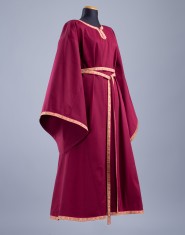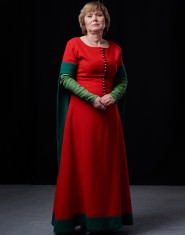About Medieval dresses
Welcome to section “Women’s dresses”. Here you’ll see models of beautiful medieval garb, which were typical for Medieval Europe.
We sew every item by hands according to customer’s individual measures and personal regards. Dresses conform to historical analogues, which you can see in paintings and miniatures.
To order one of these custom-tailored dresses, you just need to:
- Open the wished good;
- Choose fabric for your dress: velvet, wool, linen or jacquard;
- Define the required colour;
- Add lining for your dress (if available);
- Define your size.
If there are some difficulties with choosing, please contact our manager. We’ll help you to specify your size and required model.
Once all options have chosen, you need to add item to the cart and make a payment. After that, manager will contact you with measurement request and specification of order’s details.
If you didn’t find the wished piece of clothing in this section, we can make it individually for you. Just send picture with detailed description to [email protected]. Then we will advise you price and discuss details of order.
In the XI-XII centuries, women were wearing upper dress called bliaut. Noble ladies could afford such garb made of rich and soft fabrics. Commoners were dressing in dresses of unbleached linen or cotton. Dress was feet length and was worn over the underdress – chemise. Collar covered chest and neck, sleeves were very long.
Typical feature of bliaut was fancy shape of sleeves: they flared out down from the elbow. It was thought, that such sleeves made women’s movements more expressive and lovely. Edge of sleeves and neckline were decorated with beautiful trimming or embroidery. Bliaut was worn with long belt, with rich decoration.
In the XIII, multilayered outfit were spreading. There was upper dress with long narrow worn over the chemise. For going outside, women were wearing outer garment surcoat (French “sur cotte” – over the cotte) of thick elegant fabrics of contrast colours. It had short sleeves or did not have them at all. Later, long narrow sleeves with cuts for arms became fashion.
Dresses of so-called “Burgundian fashion” of the XV century were one of the most interesting ensemble. Such outfit was notable for its elongated silhouette, typical for gothic style. Sharp, pointed shapes were underlined in every way – in cutouts of dresses, shoes, and tall headwears.
Burgundian style garb had very high waistline. Long skirt had extending train. Length of a train was strictly regimented by lady’s social status. Noble women could wear dress with train of few meters.
Shape of sleeve were varying from narrow one with rich in ornament on the cuffs to wide and balloon-shaped. Neckline could be different as well, but approximately at the same time V shaped decollete came into fashion. Placket were becoming lower. Tailors decorated it with lacing, embroidery with golden thread, pearls and fur trim.
Kirtle was another type of upper dress, worn by European fashionistas. It had long cut to the waist level (and even lower) with lacing. Another specific feature of kirtle was detachable sleeves. Sometimes one dress had few sets of sleeves of different shape, fabric and colour. Sleeves were attached to the armholes with pins or lacing.
Starting the XV century, dresses started to gain national features, based on the culture, social and religious traditions, rules and temperament of people of this or other country. For example, modest dresses with plain skirt and minimalistic decoration were typical for puritan England. But at the same time, tempermental Italian women were sparking in the dresses with wide skirts, low square decollete and puffed sleeves with cuts, where underdress could be seen.
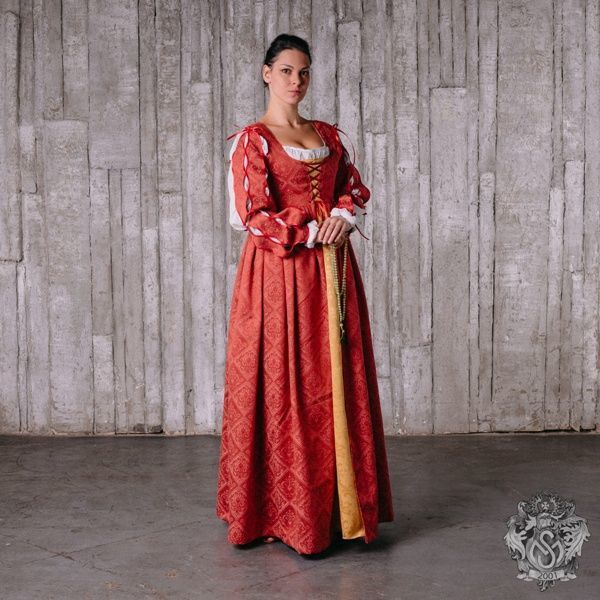


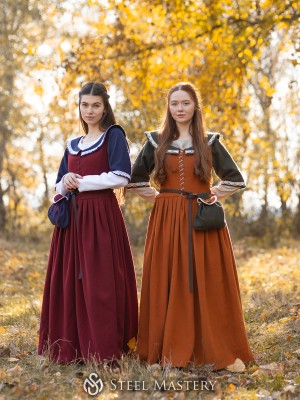
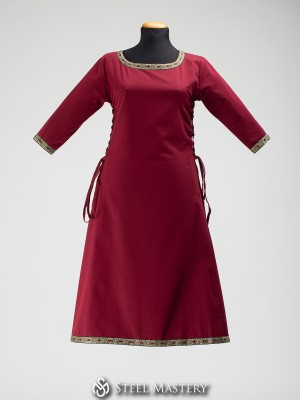
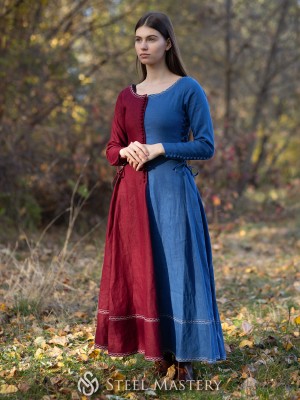

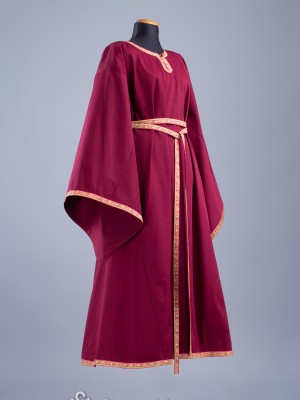
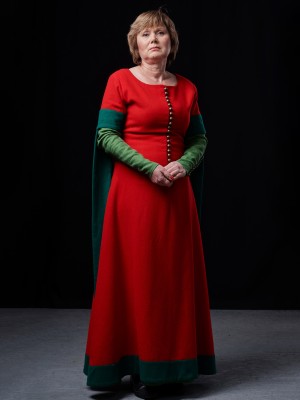

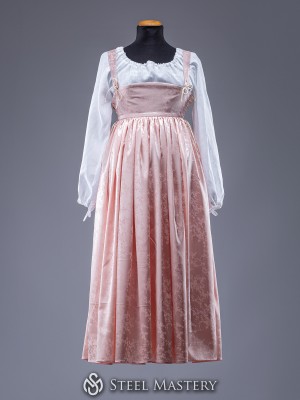
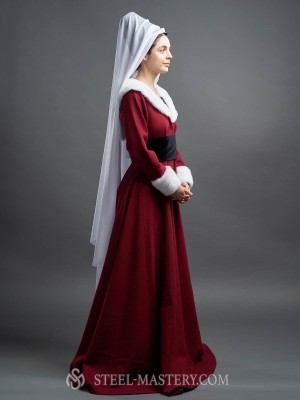
-0-1-0-1-1-300x400.jpg?v=1746523880)
